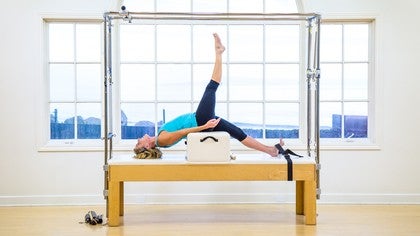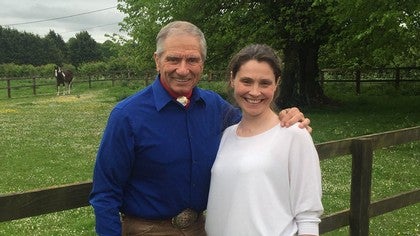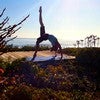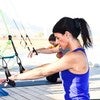Why Do Israeli Soldiers Do Pilates?
Have you ever woken up with a smile on your face and a mission on your hands? With the knowledge that of the 100,000 things you have to do today, they are all connected to making people walk again, get out of bed, or just smile?
I’m not talking about depression here. I speak of hard-core rehabilitation for soldiers who have sacrificed their future for a nation.
As a teenager, I always knew I was destined to help people. So, naturally, my path in the Israeli army was to be a medic in the “special forces” unit.
The long training sessions I’ve been through (both mentally and physically) paid off. When war erupted, the wounded began to stream in, and every injury was included - light to fatal. I’ve treated soldiers with gunshots, severe head wounds, leg amputations, and spinal injuries.
I accompanied them from the field to the rehabilitation process. It was then that I realized my path funnelled down to rehabilitation.
I earned a B.Ed in Sports Rehabilitation. This degree focused on getting people back on track, whether you’re an injured soldier or someone born with a certain disability.
From the Battle Field to the Real World
Years went by, and I felt the need for a special re-tune.
It was Elizabeth Larkam who showed me the way. I lived in San Francisco at that time, so I began to study with her, with the goal of working with special needs in mind.
Elizabeth refined my work and taught me everything she knew: how to adjust the Pilates exercises individually, with the understanding that everyone can improve their daily routine with it. I continued my special needs work in the Silicon Valley pool and started treating one-on-one sessions at my own clinic, on my first Reformer.
Grateful and at War
Around the time I got back to Israel, another war began. I decided I wanted to bring my knowledge to the battlefield once again, but with a slight difference: I brought my vast experience in Pilates rehabilitation, so I could contribute more than ever.
I joined Beit Halochem, the Israel army’s disabled veteran organization, in order to change the most injured lives for the better.
Switching audiences wasn’t easy. Most of the soldiers were battle shocked, so the treatment was triggering both mental and physical issues.
There were times my exercises weren’t meant to be just physical rehab and instead focused on letting go of the pain. I had veterans exercising for an entire hour who were angry and weeping, remembering their healthy past. The work was endless and woven with many new elements for me.
Long-Term Relationship
As you know, integration techniques are necessary to the process. As a rehabilitation specialist, I must be tuned-in with every patient’s physiotherapist, speech therapist, and basically, every therapist involved. I watch their sessions on a bi-weekly basis and keep the personal doctor in the loop. The most important thing is setting the patients’ personal goals on high priority, along with my goals for them. Every patient has a short and long-term goal, and every goal is a part of the big plan.
Can you imagine what it is like to watch a father, after a long struggle, finally be able to lift his arm and simply hug his kid?
We Have the Power
It’s the sixth year I've worked in Beit Halochem, and I love it.
I just want to pass my knowledge on. I think we as Pilates instructors have the power to change people’s lives, not only in the lightweight injuries field but in the vast neurological intriguing field. It is hard work, both physically and mentally, but the reward is endless. Plus, you learn so much about yourself.
I invite you to watch this video I made of my work with Kfir, a rehabilitated soldier who survived a direct missile hit to his head (It is one of many videos I take to keep up with each patient's progress.).
No doubt Kfir is alive and functioning thanks to a miracle, but without very hard work, his life wouldn’t be as it is today.
Comments
You need to be a subscriber to post a comment.
Please Log In or Create an Account to start your free trial.
































